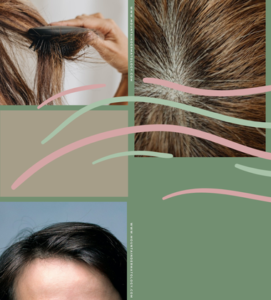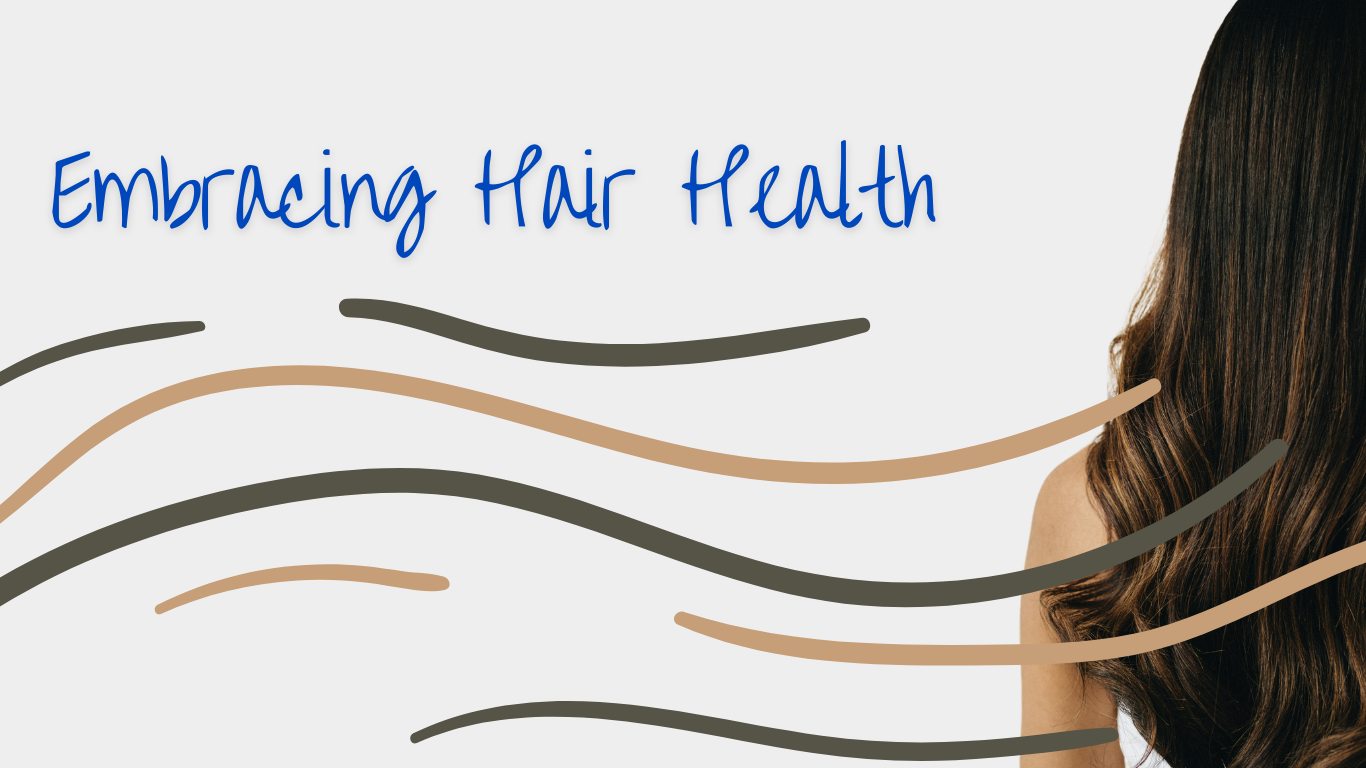All About Your Hair
Most of us pay a lot of attention to our hair. It’s one of our defining attributes. It’s a big part of how we present ourselves to our friends, family and people around us. There is a deep connection between hair and our sense of self.
At Mountain Dermatology, we understand that hair disorders can be a source of significant distress that impacts your self-esteem and quality of life.
Dermatology of Hair Loss Conditions
By understanding various hair disorders and proper treatments, you will be able to talk with your doctor and manage your conditions effectively.
We work with our patients to find the right solutions for their hair disorders and provide the best available treatments. Dr. Jean Urquhart and Dr. Lauren Bonati are here to guide you through the treatment process, and offer personalized solutions tailored to your specific situation.
As your trusted dermatologists in Vail, Avon, Edwards, Dillon, Frisco, Breckenridge and surrounding communities, Mountain Dermatology specializes in diagnosing and treating a wide range of hair disorders.
Diagnosing Hair Loss Conditions
Hair conditions such as alopecia areata, androgenetic alopecia, telogen effluvium, thyroid disorders, and autoimmune hair loss require specialized medical care. Proper diagnosis is essential for effective treatment.
We are here for you with a patient-centric diagnostic process that involves reviewing your personal medical history and factoring in your family history of hair conditions. A physical exam and, when appropriate, blood tests or a scalp biopsy help identify the cause of your condition.
Concerned about too much or unwanted hair? Click here.

Common Hair Loss Conditions
Alopecia Areata
Alopecia Areata is an autoimmune disorder that leads to patchy hair loss. The body’s immune system attacks hair follicles, resulting in bald patches. Although it can affect any part of the body with hair, it most commonly affects the scalp.
Androgenetic Alopecia
This hereditary condition is the most common type of hair loss in both men and women, although it presents differently between the sexes.
In women, androgenetic alopecia typically manifests as diffuse thinning across the crown of the scalp while preserving the frontal hairline. Women may notice increased hair shedding and a widening part, leading to a gradual decrease in overall hair density.
In men, the condition usually begins with a progressive thinning of hair on the crown and frontal scalp. Genetic factors and hormonal changes primarily drive this type of hair loss, often leading to noticeable bald spots and receding hairlines.
Telogen Effluvium
Telogen effluvium is a form of temporary hair loss that usually occurs after a significant stress or or change in the body, such as childbirth, surgery, or severe illness. Nutritional deficiencies and a poor diet can also trigger this condition. Hair typically regrows once you address the underlying cause.
Iron Deficiency
This condition is a common cause of hair loss in both men and women due to insufficient iron levels in the body.
Iron deficiency often leads to diffuse hair thinning and increased shedding. The hair may become noticeably thinner and more brittle, particularly around the crown and parting area. The hair may look less dense overall, with a gradual reduction in hair volume across the scalp.
Thyroid Disorders
Both hyperthyroidism and hypothyroidism can cause hair loss in men and women due to hormonal imbalances affecting hair growth.
Thyroid disorders typically present as diffuse thinning across the entire scalp. Hair may become dry, brittle, and prone to breaking, with noticeable overall thinning and increased shedding. The hair might appear less dense, and the texture can change, becoming finer and more fragile.
Drug-Induced Hair Loss
Certain medications can lead to hair loss as a side effect in both men and women, disrupting the normal hair growth cycle.
Drug-induced hair loss often presents as diffuse thinning across the scalp. The onset can be sudden, coinciding with the start of a new medication, leading to noticeable shedding and reduced hair density. There may be increased shedding and a general reduction in hair volume, often linked to specific medications known to affect hair growth.
Autoimmune Disorders – Lupus
Lupus, an autoimmune disorder, can cause hair loss in both men and women by attacking hair follicles and disrupting the normal hair growth cycle.
Lupus-related hair loss usually presents as diffuse thinning or patchy areas of hair loss across the scalp. The hair may become brittle, and there might be areas of scarring alopecia, where hair fails to regrow, leading to permanent hair loss in those spots.
Treatment Options for Hair Loss Conditions
A variety of treatments are available for hair loss conditions and disorders, depending on the type and severity of the condition. These include topical treatments, oral medications, hormonal treatments, and procedural treatments performed in our office. Dr. Urquhart and Dr. Bonati will work with you to provide an accurate diagnosis and appropriate treatment.
Topical Treatments to Treat Hair Loss
Minoxidil is a topical treatment that promotes hair growth and slows hair loss. It is often used to treat male and female pattern baldness and has been shown to increase hair density and thickness with continued use.
Topical Finasteride is a treatment that targets hair loss by inhibiting the hormone responsible for shrinking hair follicles. It is commonly used for male and female pattern baldness and has been shown to reduce hair loss and promote hair regrowth with consistent use.
Latisse is a topical treatment used to enhance eyelash growth. It has been shown to promote longer, thicker, and darker eyelashes with regular application. Hair loss is not limited to the scalp and can affect eyelashes and eyebrows. Latisse can be a useful medication to enhance hair growth of eyelashes and eyebrows.
Oral Supplements to Treat Hair Loss
Nutrafol is an oral supplement formulated with a blend of vitamins, minerals, and botanical ingredients designed to support hair health. It aims to promote hair growth, improve hair strength, and reduce shedding by addressing the root causes of hair loss.
Oral Prescription Medications to Treat Hair Loss
Minoxidil is an oral medication that promotes hair growth and slows hair loss. It is used off-label to treat severe cases of hair loss and has been shown to increase hair density and thickness with continued use.
Finasteride is an oral medication that reduces hair loss by inhibiting the hormone responsible for shrinking hair follicles. It is commonly used for male pattern baldness and has been shown to promote hair regrowth and reduce further hair loss.
Dutasteride is an oral medication similar to finasteride but is more potent in inhibiting the hormones that cause hair follicle shrinkage. It is used for male pattern baldness and has been shown to significantly reduce hair loss and promote regrowth.
Spironolactone is an oral medication used to treat female pattern hair loss by reducing androgen levels. It helps decrease hair shedding and promotes regrowth, particularly in women with hormonal imbalances.
Janus Kinase (JAK) Enzymes Inhibitors
- Baricitinib is an oral medication used to treat autoimmune conditions that cause hair loss, such as alopecia areata. By inhibiting JAK enzymes, it helps reduce inflammation and promotes hair regrowth.
- Ritlecitinib is an oral JAK inhibitor targeting specific pathways involved in autoimmune hair loss conditions. It helps reduce immune system attacks on hair follicles, promoting regrowth in conditions like alopecia areata.
- Deuruxolitinib is an oral medication that inhibits JAK enzymes, reducing inflammation and immune system activity that leads to hair loss. It is used to treat autoimmune hair loss conditions and has shown promising results in promoting hair regrowth.
Hormonal Treatments for Hair Loss
Hormonal treatments such as oral contraceptives or anti-androgens are used to balance hormone levels to treat female pattern baldness and hirsutism.
Procedural Treatments to Stimulate Hair Regrowth
Platelet-Rich Plasma (PRP) Therapy for hair loss involves injecting concentrated platelets from the patient’s blood into the scalp. This treatment stimulates hair growth and improves hair density.
Intralesional Steroid Injections are used to treat inflammatory conditions that cause hair loss, such as alopecia areata. By injecting corticosteroids directly into the affected area of the scalp, this treatment helps reduce inflammation and promotes hair regrowth.

Supporting you through the process
At Mountain Dermatology, we guide you through each step of the treatment process by offering personalized solutions tailored to your specific situation. These conditions exact an emotional toll, and we are here to listen to your concerns and provide support. Our expertise ensures you can access the most advanced and effective treatment solutions available in a compassionate, understanding environment.
Call the clinic now to schedule your appointment at 970-926-1800.
Concerned about excessive or unwanted hair? Click here to learn more.
For Your SKIN-formation
Follow our socials for bite-sized dermatology education and healthy skin tips!

